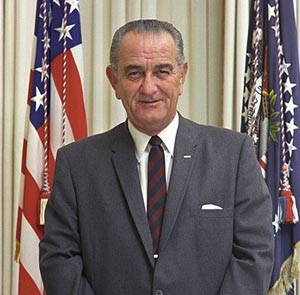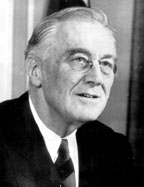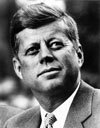Lyndon Johnson was the 36th President of the US from 1963 to 1969 – one of the most turbulent and influential periods in American politics. Lyndon Johnson helped to implement the ‘Great Society’ reforms – extending welfare support and implementing civil rights legislation. He also presided over the escalation of American involvement in the Vietnam War which proved increasingly controversial.

Johnson was born on August 27, 1908, in central Texas. Growing up in the Great Depression, he gained a first-hand perspective on poverty, and the Great Society reforms he later implemented were an attempt to make this kind of poverty a thing of the past.
In 1937, aged only 29, Johson successfully won election to the House of Representatives. During the Second World War, he served in the Navy, winning the Silver Star for service in the Pacific. In 1948, he was elected to the Senate, and by 1953, had become the youngest ever Minority House Leader. He worked closely with Dwight D Eisenhower and helped to get some of his policies through the Senate. In 1960, he stood as Vice President to the youthful
In the 1959 election, he stood as Vice President to the youthful John F Kennedy. The idea was that the Protestant, southern Johnson would make a dream ticket to accompany the northern Catholic liberal, John F. Kennedy. In 1959, one of the tightest ever elections, JFK-Johnson were elected, defeating Richard Nixon. The three years of the Kennedy presidency proved turbulent, with the Cuban Missile Crisis and the Cold War dominating foreign policy. America also started to become involved in aiding the South Vietnamese against their northern Communist enemies.
In 1963, JFK was assassinated, while visiting Dallas, Texas – Johnson’s home state. Shortly after, Johnson was sworn in as Vice President and addressed a shocked nation.
“This is a sad time for all people. We have suffered a loss that cannot be weighed. For me, it is a deep, personal tragedy. I know the world shares the sorrow that Mrs. Kennedy and her family bear. I will do my best; that is all I can do. I ask for your help and God’s.” (22 November 1963)
In 1964, Lyndon Johnson was re-elected in a landslide for the Democrats. In this period, America became more involved in the Vietnam war – switching from providing intelligence to bombing positions in the north and putting American troops on the ground. JFK’s and Lyndon Johnson’s secretary of defence, Robin McNamara, suggested that if JFK had lived, American involvement in Vietnam would have decreased. But, with the Gulf of Tonkin resolution of 1964, Johnson gained a free hand from Congress to take greater involvement in the Vietnam war. He said in 1965,
“I do not find it easy to send the flower of our youth, our finest young men, into battle.”
But the war was increasingly escalated, and the casualties mounted. The conflict also became increasingly unpopular and costly to the American people. By 1968, there were widespread protests and civil disobedience in protest at the war.
On a domestic front, Johnson was able to pass more legislation through Congress as part of his Great Society reforms. This included extended welfare support for poorer Americans. For example, millions of elderly people benefited through the 1965 Medicare amendment to the Social Security Act. Johnson also enacted civil rights legislation to protect in law, equal rights independent of a person’s ethnic group. In 1965, he introduced the Voting Rights Act.
“Every American citizen must have the right to vote…Yet the harsh fact is that in many places in this country men and women are kept from voting simply because they are Negroes… No law that we now have on the books…can insure the right to vote when local officials are determined to deny it… There is no Constitutional issue here. The command of the Constitution is plain. There is no moral issue. It is wrong—deadly wrong—to deny any of your fellow Americans the right to vote in this country. There is no issue of States’ rights or National rights. There is only the struggle for human rights.” (15th March 1965
However, the new legislation often didn’t change the situation on the ground, and there were growing civil rights protests at continued racial discrimination. Martin Luther King led non-violent protests, though increasingly others, such as Malcolm X wanted more radical action.
Lyndon Johnson shocked American by not standing for re-election in the 1968 election. He died of a heart attack in 1973.
Citation: Pettinger, Tejvan “Lyndon Johnson Biography”, Oxford, www.biographyonline.net, 11th Jan 2011.
The Triumph & Tragedy of Lyndon Johnson
The Triumph & Tragedy of Lyndon Johnson at Amazon
Related Pages

Famous Americans – Great Americans from the Founding Fathers to modern civil rights activists. Including presidents, authors, musicians, entrepreneurs and businesspeople.


Biography of JFK President until November 1963.

